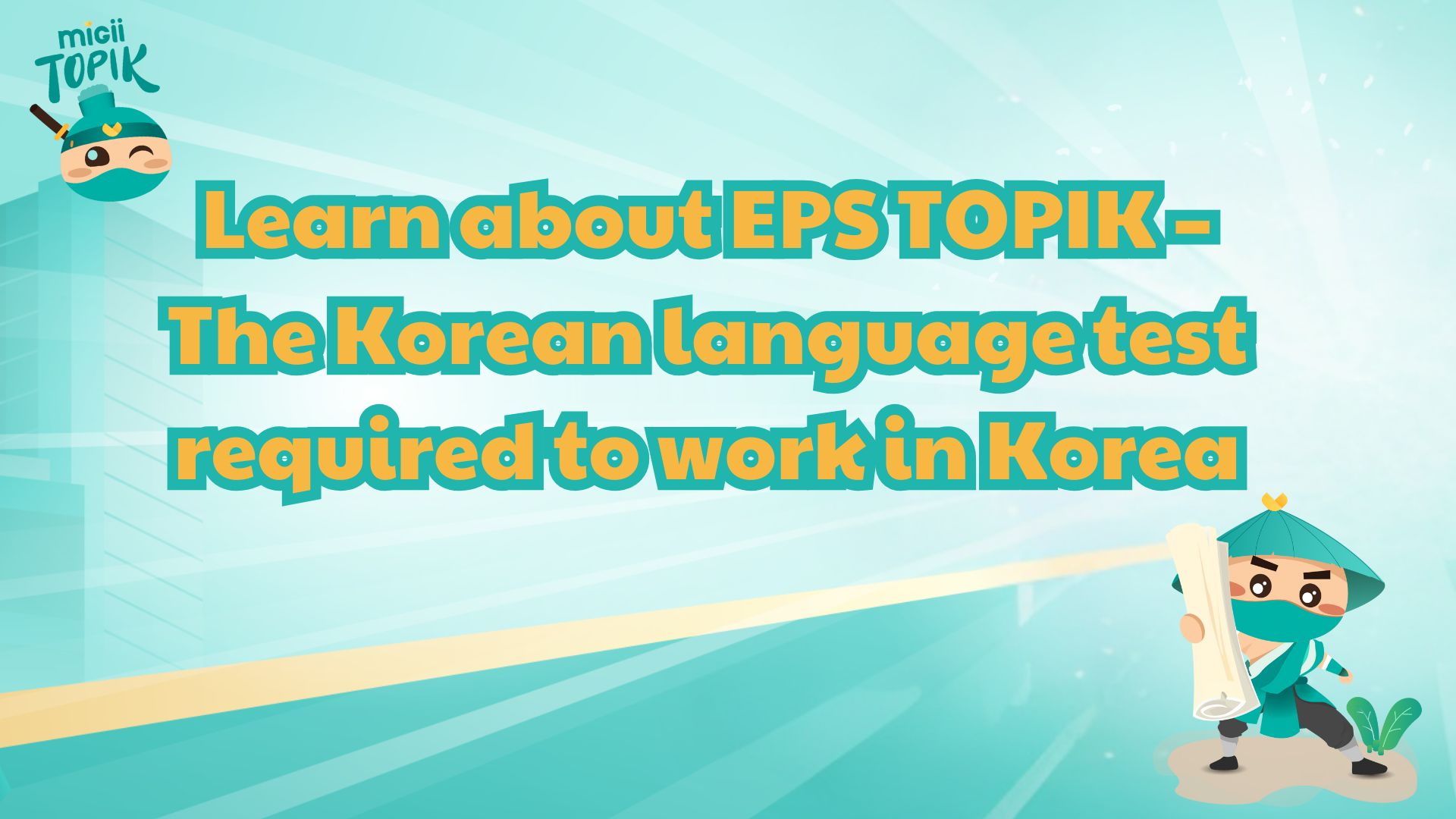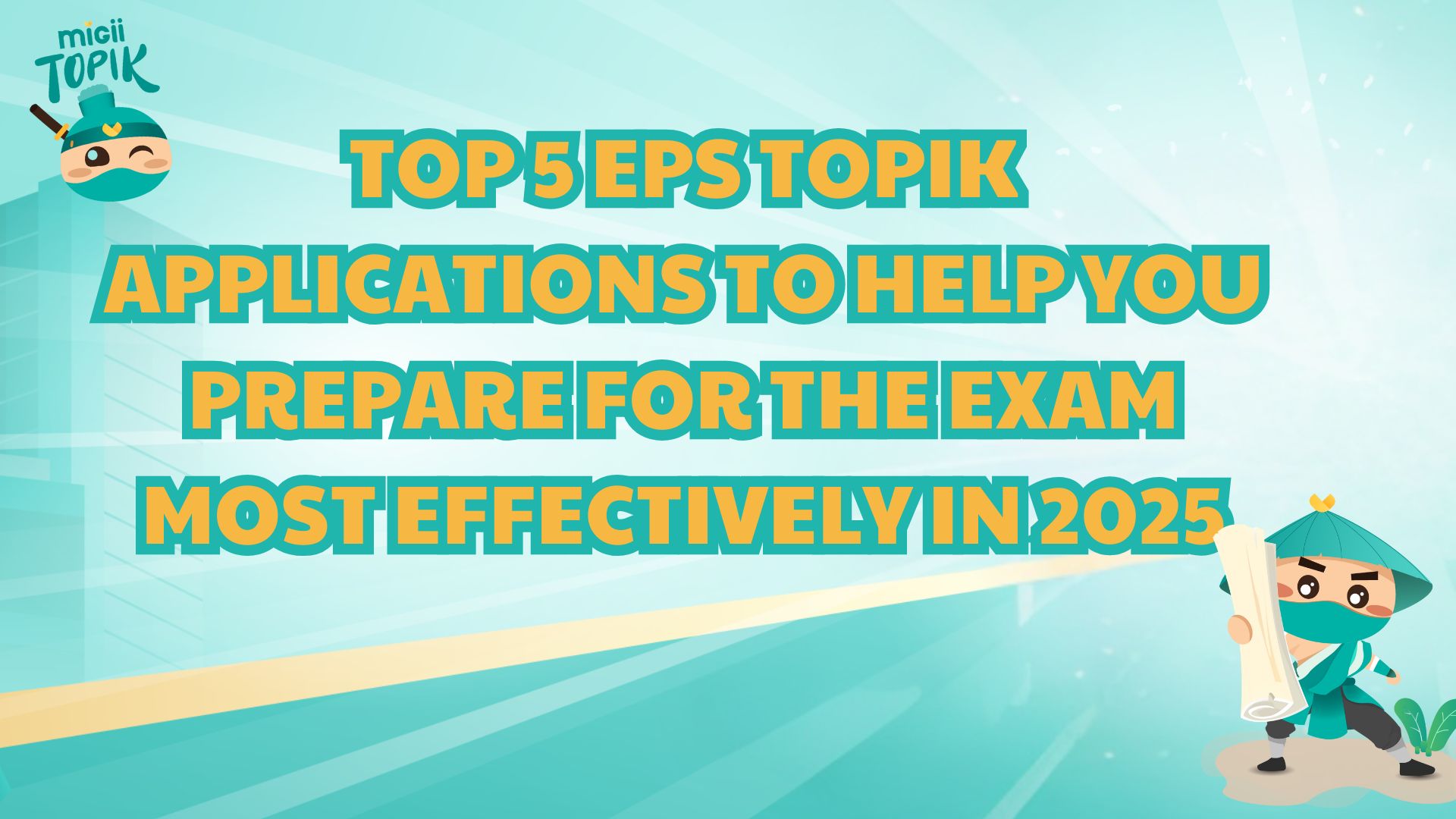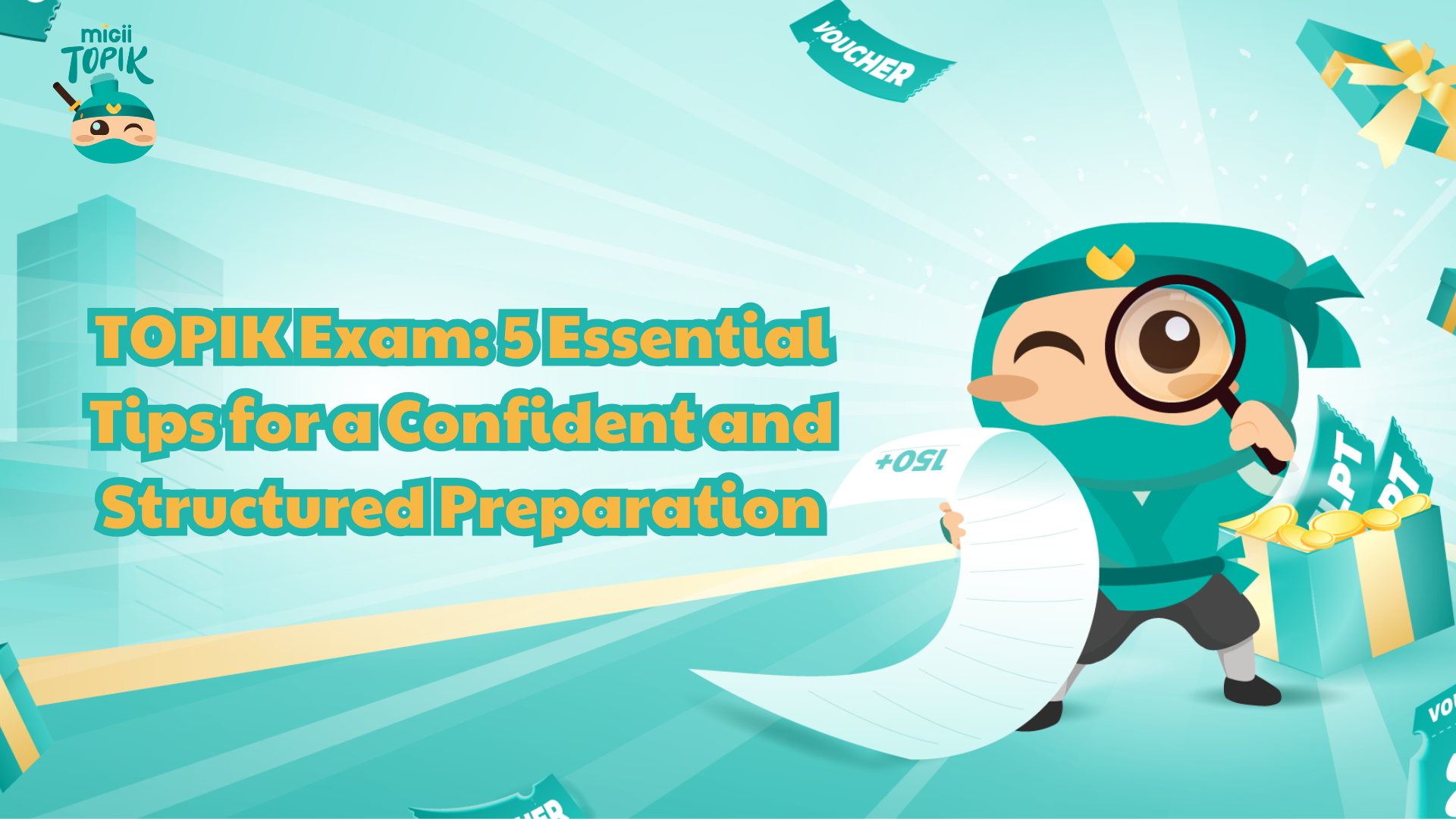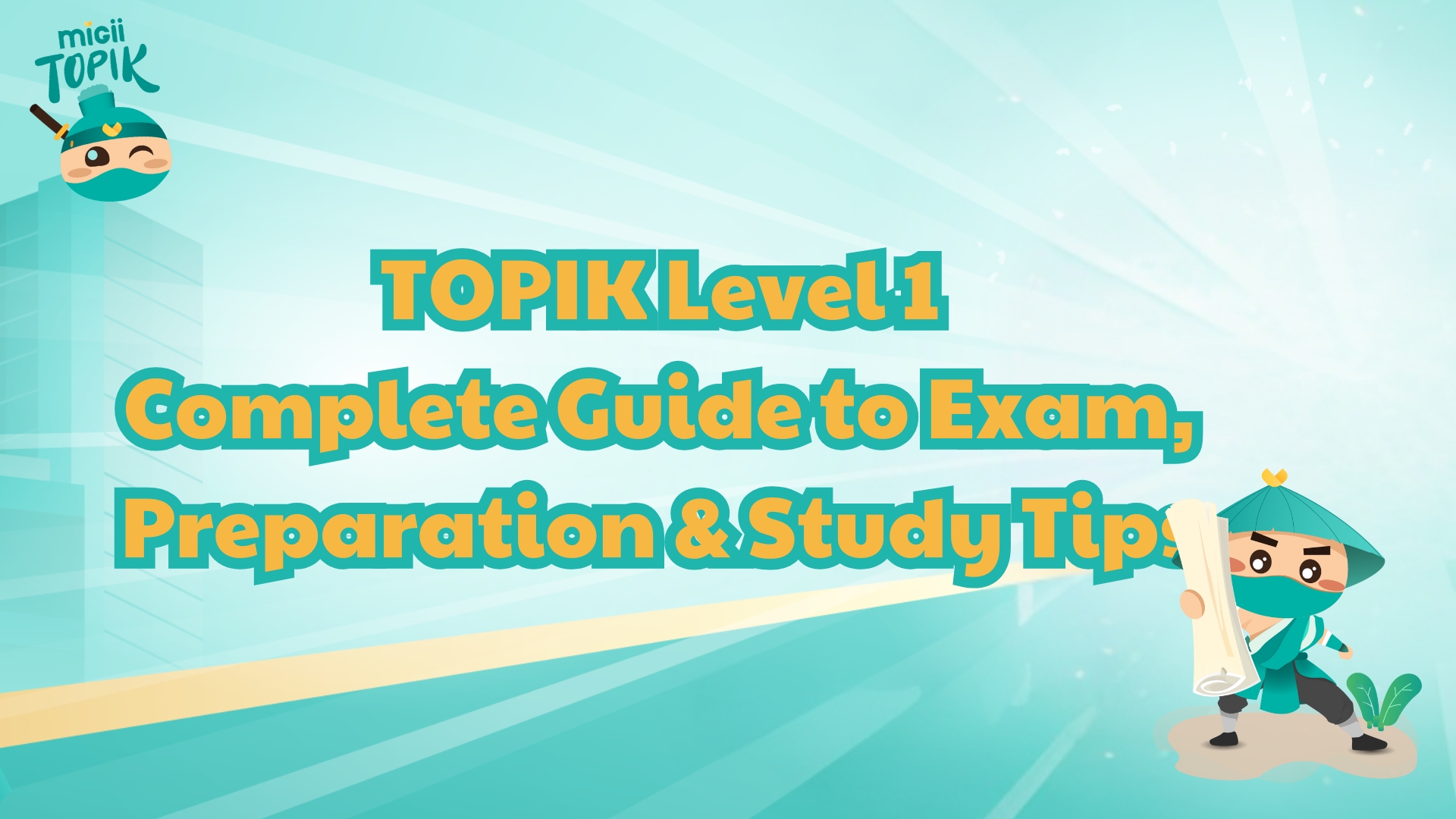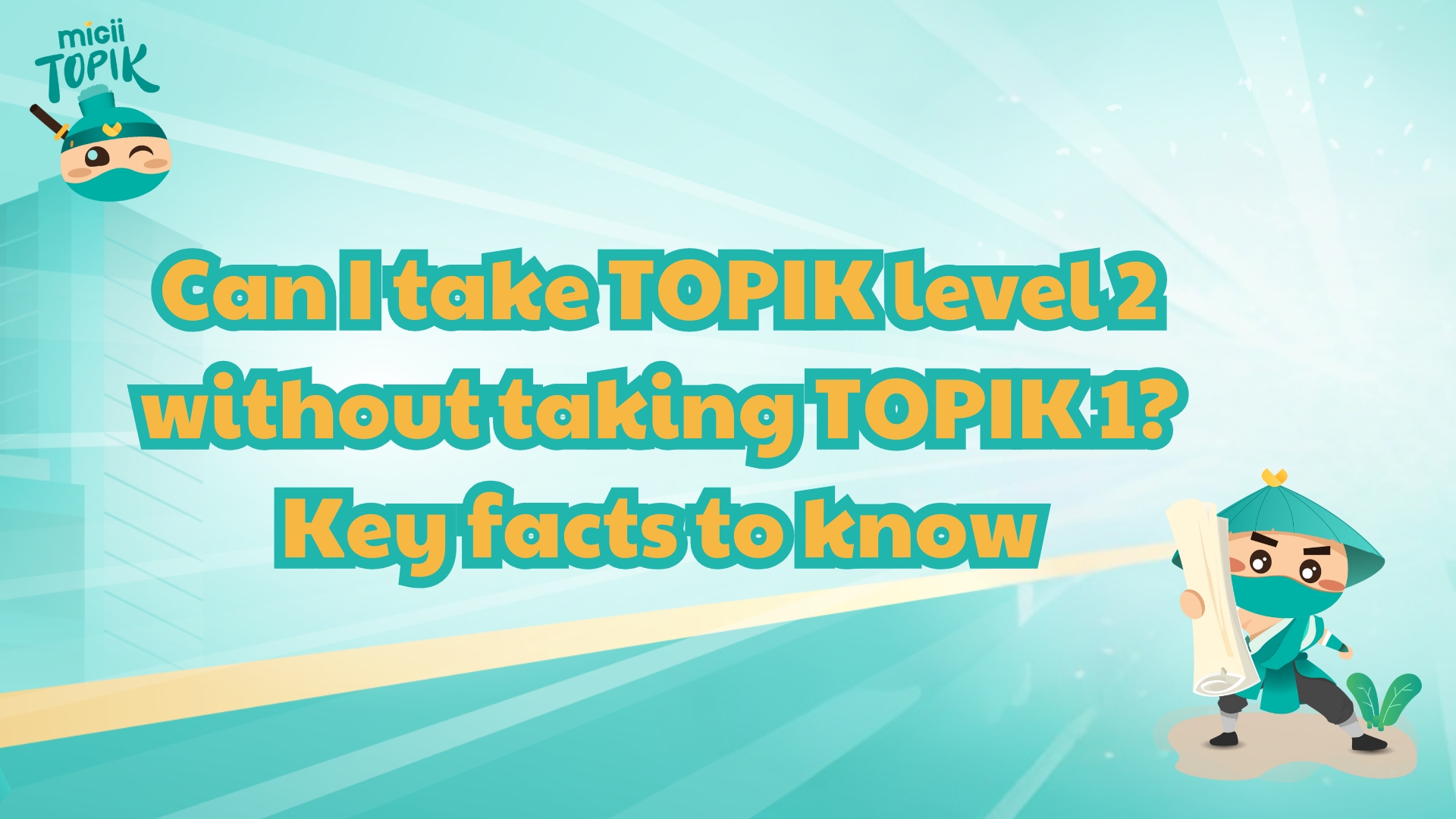EPS TOPIK and TOPIK are both Korean language proficiency tests, but they serve different goals. TOPIK is designed for students and professionals who wish to study or work in Korea, while EPS TOPIK is specifically for foreign workers applying to Korea under the Employment Permit System. Understanding their differences helps learners choose the right exam based on their goals — whether it’s for academic, career, or labor opportunities in Korea.
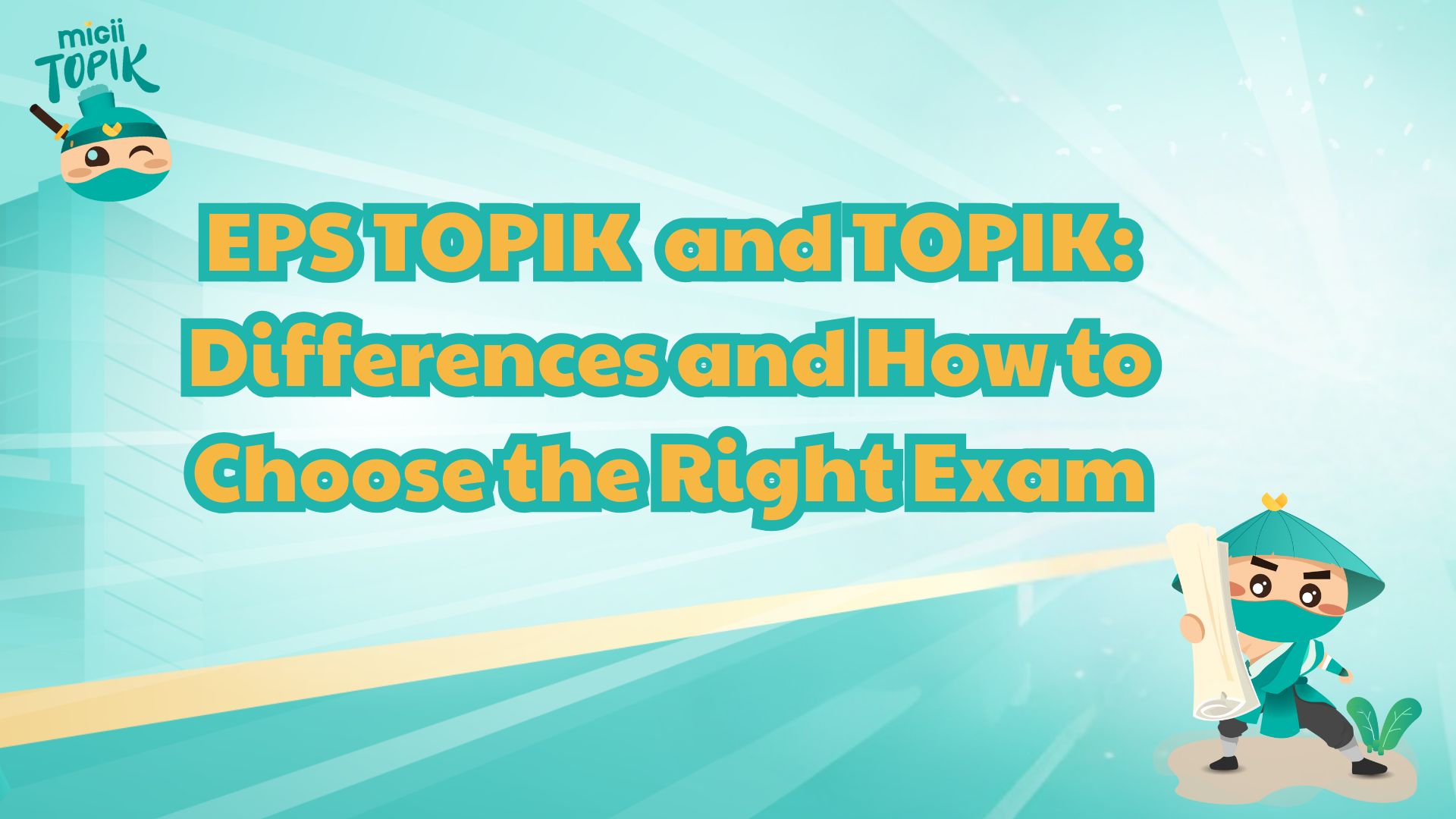
EPS TOPIK vs TOPIK
General introduction EPS TOPIK vs TOPIK
TOPIK (Test of Proficiency in Korean) is a standardized test designed to measure the Korean language proficiency of non-native speakers. It is organized by the National Institute for International Education (NIIED) and is used worldwide for academic admission, job applications, and visa purposes.
EPS TOPIK (Employment Permit System Test of Proficiency in Korean), on the other hand, is a special version of the Korean proficiency test developed for foreign workers who wish to work in South Korea under the Employment Permit System (EPS). It focuses mainly on practical communication and workplace-related Korean language skills.
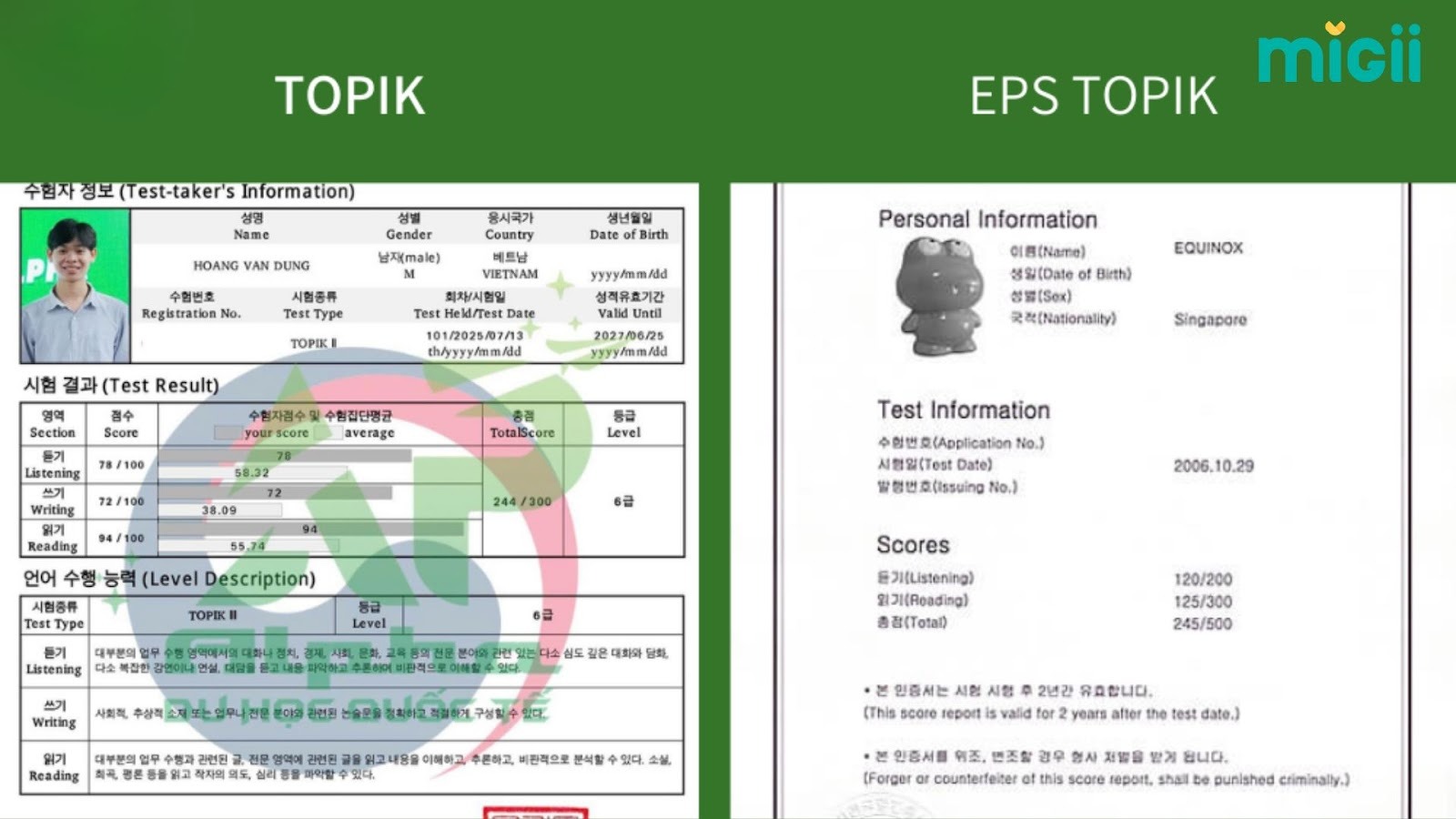
What are TOPIK and EPS TOPIK
Many learners misunderstand the difference between TOPIK and EPS TOPIK because both tests assess Korean language ability and have similar names. However, their purposes, content, and target audiences are very different. While TOPIK is academic and comprehensive, EPS TOPIK is vocational and practical, designed specifically for employment purposes.
Both exams play significant roles in helping learners achieve their goals. TOPIK is crucial for those who want to study at Korean universities, apply for scholarships, or pursue professional careers requiring Korean proficiency. Meanwhile, EPS TOPIK is essential for those who wish to legally work in Korea, especially in industries such as manufacturing, construction, and agriculture. Each test opens distinct opportunities for personal and professional development.
Overview of the TOPIK exam
What is TOPIK?
TOPIK (한국어능력시험) is a Korean language proficiency test held annually by the National Institute for International Education in Korea. TOPIK is used to evaluate the level of Korean language proficiency of learners as a second language. This certificate evaluates the listening, reading, writing, and speaking skills of Korean learners, with the speaking test being held only in Korea. Test subjects include foreigners and Koreans living abroad, not native speakers.
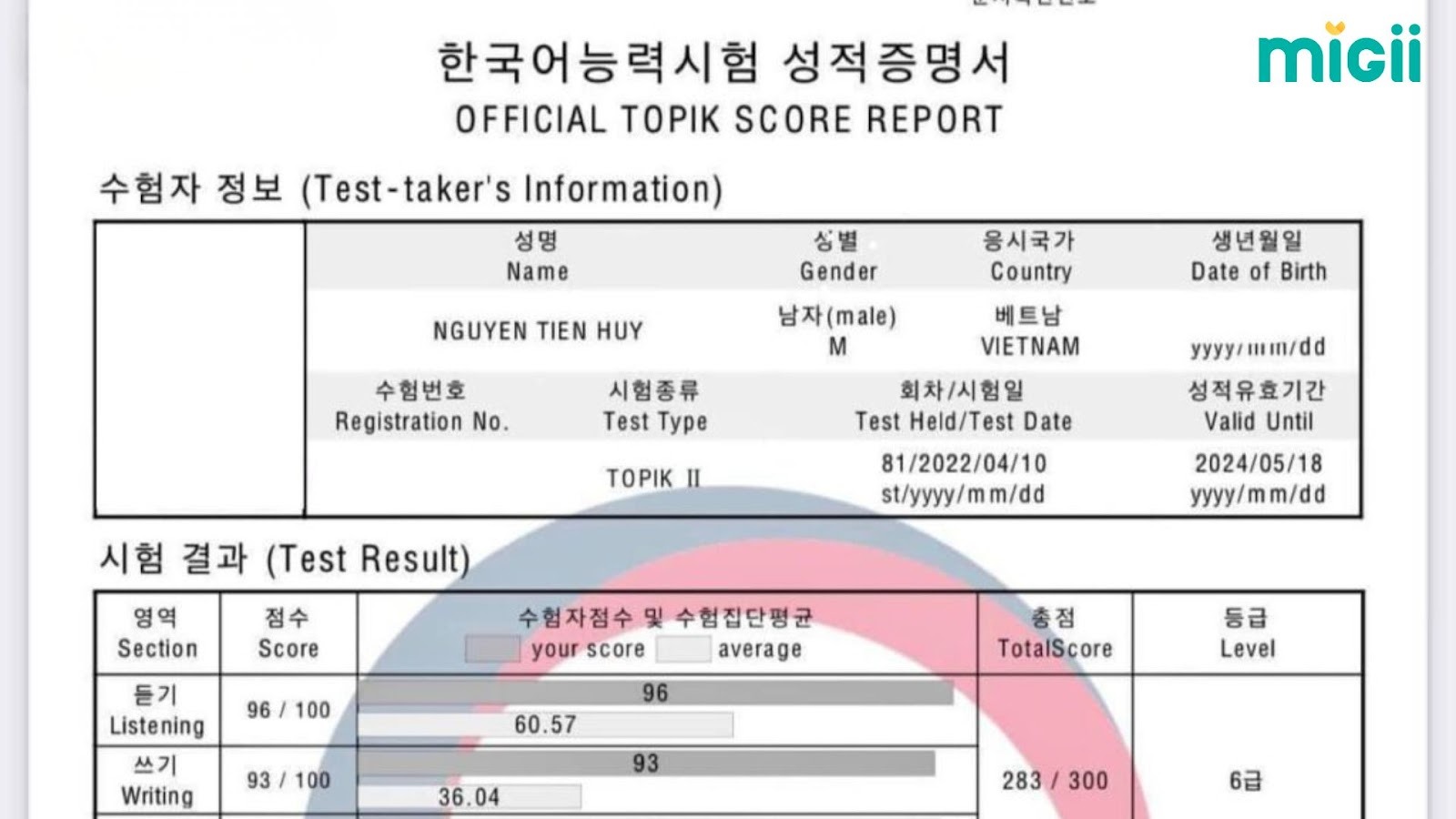
What is TOPIK
TOPIK Test Structure
- TOPIK Level 1
To pass the TOPIK Level 1 exam, you need to complete Beginner Level 1 in Korean, which includes memorizing about 800 words and learning basic grammar structures.
At this level, you can form simple sentences, understand and communicate basic daily expressions about topics such as self-introduction, ordering food, shopping, hobbies, weather, and family.
For those who plan to study Korean language in Korea under the D4-1 visa, obtaining a TOPIK Level 1 certificate is sufficient.
- TOPIK Level 2
To achieve TOPIK Level 2, you should complete Beginner Level 2 and build a vocabulary of around 1,500–2,000 words.
Learners at this level can understand short passages and communicate confidently in public places such as banks, post offices, and hospitals.
Those who reach TOPIK Level 2 are eligible to apply for D4-1 and D4-6 student visas to study in Korea.
- TOPIK Level 3
When you reach TOPIK Level 3, you can communicate comfortably in everyday situations, understand and express emotions based on specific topics, and write short paragraphs.
You are also capable of using appropriate language functions for maintaining social relationships and navigating public services.
Students with TOPIK Level 3 can pursue higher education in Korea at the college level under the D2 visa category.
- TOPIK Level 4
At this level, you can read and understand Korean newspaper articles, and communicate fluently in both daily life and workplace settings.
You can explore Korean culture and society more deeply, build meaningful relationships, and broaden your knowledge through active use of the Korean language.
Learners who achieve TOPIK Level 4 or higher are eligible to enroll in university-level academic programs in Korea under the D2 visa.
- TOPIK Level 5
Learners who attain TOPIK Level 5 can use Korean as a working language in academic, research, or professional fields.
They are able to understand and apply Korean in various contexts such as culture, economics, politics, and society, and can clearly distinguish between written and spoken forms of the language.
- TOPIK Level 6
Reaching TOPIK Level 6 means you can communicate in Korean almost like a native speaker.
You can use the language accurately and fluently in all situations, including advanced academic research and specialized professional work across various fields, without significant difficulty.
|
Evaluation Criteria |
TOPIK I (Beginner Levels 1–2) |
TOPIK II (Intermediate Levels 3–4 & Advanced Levels 5–6) |
|
Skills Assessed |
- Listening (30 questions) - Reading (40 questions) |
- Listening (50 questions) - Writing (4 questions) - Reading (50 questions) |
|
Total Score |
200 points |
300 points |
|
Certificate Levels |
Level 1 – Beginner 1 Level 2 – Beginner 2 |
Level 3 – Intermediate 1 Level 4 – Intermediate 2 Level 5 – Advanced 1 Level 6 – Advanced 2 |
TOPIK Goals & Benefits
- Apply for Scholarships and University Admission in Korea
A TOPIK certificate is one of the key requirements for foreign students who wish to apply for Korean universities or scholarship programs. Many institutions use TOPIK scores to evaluate applicants’ language readiness for academic study. - Enhance Employment Opportunities in Korean Companies
TOPIK certification is highly valued by Korean and international companies that operate in Korea or work with Korean partners. It serves as proof of your ability to communicate effectively in Korean and can significantly improve your job prospects. - Support for Visa and Long-term Residency Applications
TOPIK results are often required or considered when applying for certain types of Korean visas (such as D-series or F-series) and for long-term residency or naturalization. Holding a valid TOPIK certificate demonstrates your integration ability and commitment to Korean society.
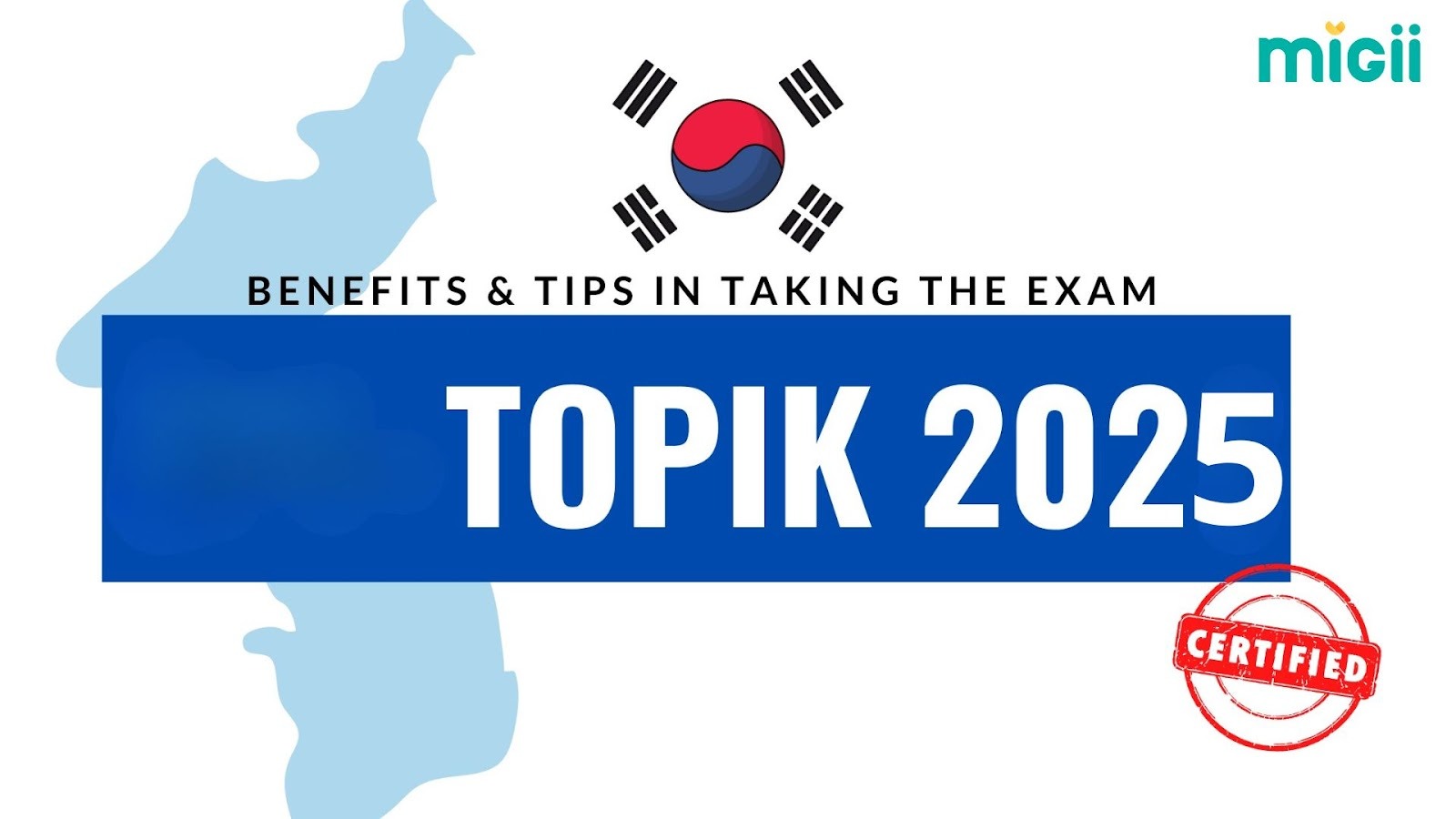
TOPIK Goals & Benefits
Overview of EPS TOPIK exam
What is EPS TOPIK?
EPS TOPIK is a dedicated Korean language test for foreign workers who aim to work legally in South Korea. Unlike the general TOPIK, which evaluates academic or professional Korean, EPS TOPIK focuses on practical language skills needed in everyday work environments, ensuring candidates can communicate effectively in the workplace.
The exam is organized and managed by the Human Resources Development Service of Korea (HRD Korea). This agency is responsible for overseeing recruitment, testing, and placement of foreign workers under the Employment Permit System (EPS).
The main goal of EPS TOPIK is to assess whether candidates have sufficient Korean language skills to perform job duties safely and efficiently. Passing EPS TOPIK is a mandatory requirement for anyone who wants to work in South Korea legally, providing access to jobs in industries such as manufacturing, construction, and agriculture. It also helps workers integrate smoothly into Korean workplaces and communicate confidently with colleagues and supervisors.
EPS TOPIK test structure
Promoting adaptation to Korean life by leading entrance of foreign worker who has basic understanding on Korea and evaluation of the level of Korean language skills of foreign job seekers and Korean Society. It can be used as objective selection criteria for the list of foreign job seekers.
Test hour
- 50 minutes (listening 25 minutes, reading 25 minutes)
|
Section |
Evaluation field |
Number for item of questions |
Marking |
Time |
|
The sum |
40 |
200 |
50 minutes |
|
|
Reading |
• Vocabulary grammar • Practical data information • Comprehension |
20 |
100 |
25 minutes |
|
Listening |
• Sound mark • Visual data • Conversation or study |
20 |
100 |
25 minutes |
Evaluation content
- Basic communication skill needed in every day life in Korea
- Korean language skills needed in industry
- Understanding of Korean business culture
Contest subjects & conditions
EPS-TOPIK (Employment Permit System – Test of Proficiency in Korean) is a test for Vietnamese unskilled workers who want to work in South Korea. The eligible candidates include:
- Vietnamese unskilled workers aged 18–39 years (as of the application date).
- Those who have a desire to work in South Korea, in common sectors such as food processing, construction, garment, assembly, industrial production, agriculture, and services.
- Preferably, candidates with work experience or those who wish to improve their Korean language skills to meet employment requirements in Korean companies.
Differences between EPS TOPIK and TOPIK
The Korean language exams TOPIK and EPS-TOPIK both assess Korean language proficiency, but they serve different purposes. TOPIK is suitable for those aiming to study, work professionally, or settle in Korea, while EPS-TOPIK is designed for Vietnamese unskilled workers seeking employment in South Korea. The table below compares the key criteria of the two exams:
Comparison Table: TOPIK vs EPS-TOPIK
|
Criteria |
TOPIK |
EPS-TOPIK |
|
Purpose |
Study, professional work, immigration |
Labor export to South Korea |
|
Organizing Body |
National Institute for International Education (NIIED) |
HRD Korea |
|
Skills Tested |
Listening – Reading – Writing |
Listening – Reading |
|
Difficulty Level |
Medium to high |
Basic – practical |
|
Certificate Value |
International, long-term |
Only for employment |
|
Validity |
2 years |
2 years |
|
Language & Topics |
Academic, social, professional |
Labor, daily life |
TOPIK vs EPS-TOPIK: Which One Should You Take?
You should take TOPIK if you want to study abroad, get a scholarship or work in an academic environment or Korean business with high Korean language requirements. You should take EPS TOPIK if you are an unskilled worker and want to work in Korea.
|
Criteria |
TOPIK Exam |
EPS-TOPIK Exam |
|
Main Purpose |
Assess overall Korean language proficiency for study, work, and immigration in South Korea. |
Mandatory requirement to participate in the labor export program to South Korea. |
|
Target Candidates |
Students, learners, and those intending to study or work in professional and academic environments in South Korea. |
Unskilled workers who wish to go to South Korea for employment. |
|
Scope of Application |
Widely recognized by many universities and organizations in South Korea and internationally. |
Only applicable for South Korea’s EPS labor program. |
|
Exam Structure |
Two levels: TOPIK I (levels 1–2) and TOPIK II (levels 3–6). |
Focuses on Korean language used in the workplace and daily life of laborers. |
Note:
- You need to clearly define your purpose (study or work) to choose the appropriate test.
- If your goal is to export labor to Korea, you must take the EPS TOPIK test.
- If you want to study or work long-term in Korea, the TOPIK test will be a better choice and bring more opportunities.
Effective learning and exam preparation experience
Study Tips and Effective Preparation for TOPIK
For TOPIK learners, focusing on grammar, essay writing, and academic vocabulary is crucial for achieving high scores. Grammar helps learners understand complex sentence structures, essay writing improves logical expression of ideas, and academic vocabulary supports comprehension of texts in social, professional, and academic contexts.
Additionally, using suitable study materials and tools enhances preparation efficiency. Popular resources include “TOPIK in 30 Days”, “Complete Guide to TOPIK”, apps like Migii, TOPIK GO, and similar textbooks. Combining books, apps, and practice tests helps learners familiarize themselves with exam formats, improve listening–reading–writing skills, and develop effective test-taking strategies.
Download the list of Topics in 30 days here:
https://drive.google.com/file/d/14xaUTbasHn5oo-TmcOgOvYHxycxKyOEu/view?usp=drive_link
Study Tips and Effective Preparation for EPS-TOPIK
For EPS-TOPIK learners, the focus should be on vocational vocabulary, labor safety terms, and basic communication used in daily work and life in South Korea. Mastering occupational terms and safety-related vocabulary helps candidates feel more confident in real work settings and understand workplace rules and instructions clearly.
Listening skills are also crucial. Learners should practice listening to slow, clear, and standard Korean to get familiar with pronunciation, rhythm, and real-life communication speed. Additionally, practicing real EPS tests via computer-based test (CBT) apps learners to get accustomed to the exam format, improve time management, and develop effective test-taking strategies.
To make your preparation more effective, here are some recommended materials for self-study and download:
EPS-TOPIK Official Guidebook (published by HRD Korea) – provides an overview of test structure, sample questions, and essential topics.
The EPS-TOPIK Official Guidebook, released by HRD Korea (Human Resources Development Service of Korea), is considered the most authoritative and reliable resource for anyone preparing for the EPS-TOPIK (Employment Permit System – Test of Proficiency in Korean). This guidebook is officially produced to help foreign workers understand the test structure, familiarize themselves with the content, and prepare effectively for the real exam.
Download EPS-TOPIK Official Guidebook here:
https://drive.google.com/file/d/14xaUTbasHn5oo-TmcOgOvYHxycxKyOEu/view?usp=drive_link
Conclusion
The EPS-TOPIK and TOPIK exams differ significantly in purpose, target candidates, tested skills, and study content.TOPIK learners should focus on grammar, essay writing, and academic vocabulary, while EPS-TOPIK learners should concentrate on vocational vocabulary, labor safety, and basic communication, combined with practicing real EPS tests on the Migii to get familiar with the exam format and improve test-taking speed.
